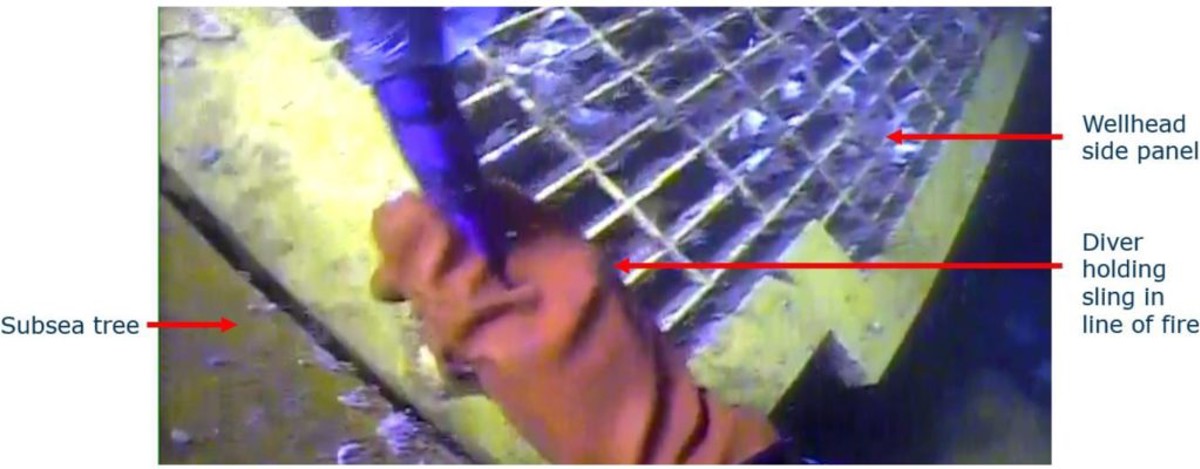LTI: Diver suffered crush injury to finger
- Safety Flash
- Published on 5 September 2022
- Generated on 25 April 2025
- IMCA SF 20/22
- 2 minute read
Jump to:
A diver sustained a crush injury to his finger.
What happened?
A diver sustained a crush injury to his finger. The incident occurred when a diving support vessel was working on a decommissioning project, and the dive team were working to re-instate a side panel on a subsea tree. The task was carried out by using the vessel main crane in active heave compensation mode, with the divers required to position the panel into the tree hinges. While the diver’s hand was positioned between the panel and the tree, the vessel heaved, causing movement on the panel, causing the diver’s finger to be crushed between the panel and the tree.
The diver sustained a fracture and laceration to his right-hand ring finger, resulting in an LTI.

What went wrong?
The investigation found that:
- The diver was holding the sling too close to the panel, meaning that when the vessel heaved, his hand was in the line of fire.
- While pinch points were identified as a hazard, no specific measures (i.e., use of tag lines) had been implemented to suitably control the hazard.
- While the procedure allowed for two methods of completing the task (either through the use of the crane or the use of lift bags) there was no guidance or instruction on factors to consider when deciding on which method to use.
Lessons learned
- When moving loads, wherever possible pinch point hazards should be eliminated by use of ‘hands-off’ lifting techniques:
- For deck operations, this should be through push/pull poles or taglines.
- For subsea operations, this should be through taglines.
- Where it is not possible or advisable to use ‘hands-off’ lifting techniques, the task risk assessment should be reviewed and updated to outline how the pinch point hazard will be managed and controlled.
- When carrying out a diving operation which allows for differing methods to be used (e.g. use of lift bag or crane), guidance should be provided on factors to consider when making the right decision, including:
- Proximity and position of Diver relative to the work area and load.
- Weight of load and ease of installation.
- Pinch point hazards related to the task.
- Potential for vessel movement and weather conditions.
Related Safety Flashes
-
IMCA SF 11/22
4 May 2022
-
-
IMCA SF 03/22
28 January 2022
-
IMCA SF 30/21
8 November 2021
-
IMCA Safety Flashes summarise key safety matters and incidents, allowing lessons to be more easily learnt for the benefit of the entire offshore industry.
The effectiveness of the IMCA Safety Flash system depends on the industry sharing information and so avoiding repeat incidents. Incidents are classified according to IOGP's Life Saving Rules.
All information is anonymised or sanitised, as appropriate, and warnings for graphic content included where possible.
IMCA makes every effort to ensure both the accuracy and reliability of the information shared, but is not be liable for any guidance and/or recommendation and/or statement herein contained.
The information contained in this document does not fulfil or replace any individual's or Member's legal, regulatory or other duties or obligations in respect of their operations. Individuals and Members remain solely responsible for the safe, lawful and proper conduct of their operations.
Share your safety incidents with IMCA online. Sign-up to receive Safety Flashes straight to your email.